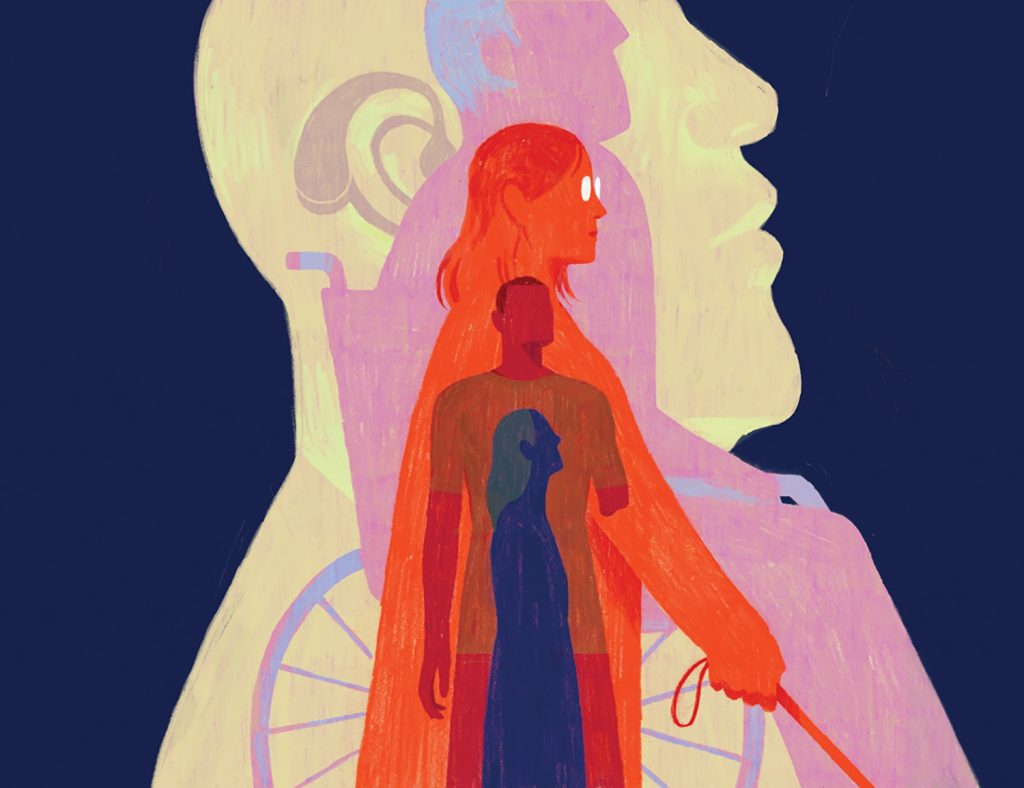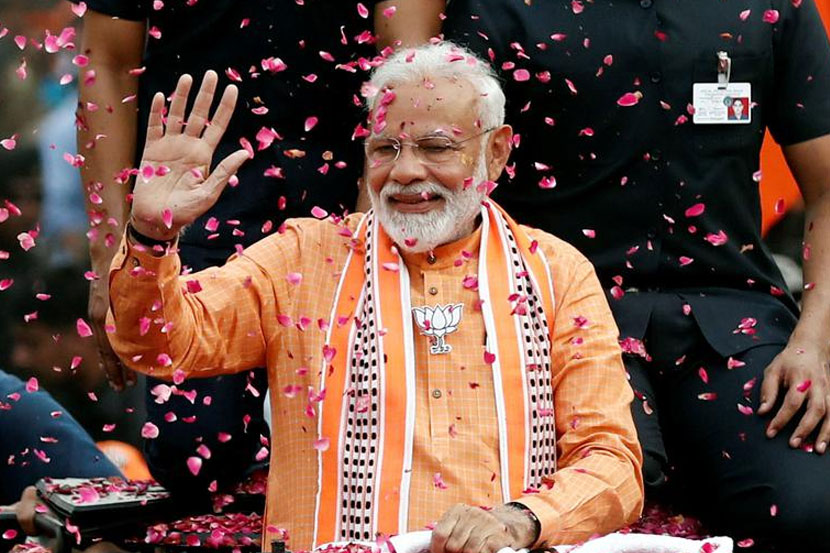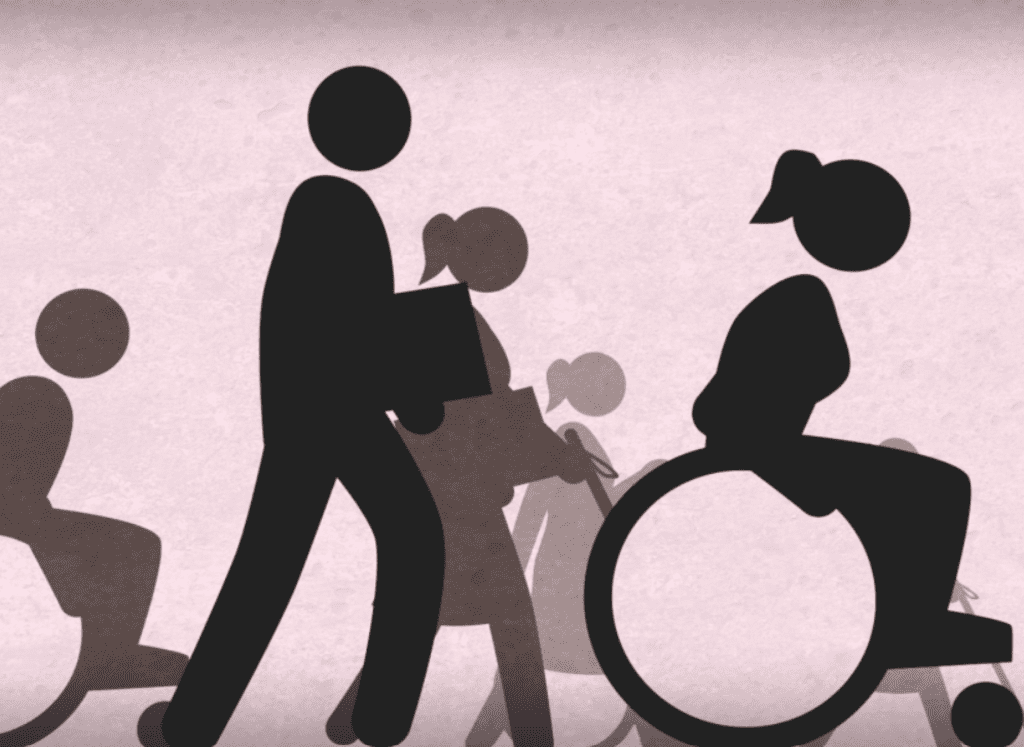
Concentrate on things your disability doesn’t prevent you from doing well and don’t regret the things it interferes with. Don’t be disabled in spirit as well as physically.
Stephen Hawking
The above lines were said by the cosmologist, mathematician, theoretical physicist, author, and professor – Stephen Hawking. In the 1960s, when he was only 21, he contracted an incurable degenerative neuromuscular disease, but he continued to work despite its disabling effects and explained the origin of the universe and the black hole for which he is best known.
He is one of the many people with disabilities who beat the challenges and set an example for the world that disability is just a perception, a way of getting some extremity, some kind of very difficult situation, that throws an interesting light on people. This perseverance is what makes them ‘specially-abled and not ‘disabled’.
But it is human nature for people to recognize you for your disabilities, not your abilities. That’s the reason why ‘specially-abled people’ go through the humiliation and even rejection from society. That’s when the State comes to protect the basic human rights of the ‘specially-abled people’, and make the society and public places accessible to them. But then, people object, “why is the State spending the taxpayers’ money on those who can’t do anything productive in return?” This shows that the ‘specially-abled people’ need not just legal protection but societal acceptance as well; not in a sympathetic way but in a normal way, as any other well-built physically abled person.
This article aims to discover and portray the social and legal position of ‘specially-abled people’ in India with the help of various Government initiatives which strive to improve their social status and legal provisions which recognize and protect their basic rights as humans, and also provide specific rights for being specially-abled so that their surroundings can be made more accessible to them.
The Journey from Viklang to Divyang
“What’s in a name?” A character in Shakespeare’s famous play argues that a person’s name is not nearly as important as who the person really is on the inside. That’s true to an extent. But in today’s world ‘name’ is associated with identity. A name differentiates one from others; so that the society is able to treat and deal with the one as someone with needs and feelings different from those of other people. This is true for the name, or say, the common noun used for the people with disabilities, i.e., ‘viklang’. As soon as one says ‘viklang’, our attention goes to what is broken in the person, his flaws.

Only recently in 2016, the Government replaced the word “viklang jan” (persons with disabilities) with “divyang jan” (persons with extraordinary abilities) for the department that comes under the Ministry of Social Justice and Empowerment (MSJE). This nomenclature was endorsed by Prime Minister Narendra Modi as well since he believes that such people are endowed with ‘extra power’ and ‘divyata’ (divinity).
This positive terminology would have no meaning if the stigmatization and marginalization continue. But the word ‘divyang’ celebrates the ‘abled gaze’ of persons with disabilities achieving beyond expectations, against all odds and difficulties, that they are ordained with special abilities to overcome any barrier that stands in their way.
Legal Rights and Protection

The constitutional provisions regarding equality of treatment and opportunity are available to disabled people as well. All the fundamental rights given by Part III of the Constitution of India are the fundamental rights of disabled people as well, owing to the provision of no discrimination itself. The Directive Principles of State Policy enumerated in Part IV of the Constitution also provide certain provisions in favor of disabled persons. For instance, Article 47 of the Constitution imposes upon the Government a primary duty to make improvements in public health which by implication includes providing for the health and well-being of disabled persons.
The personal laws, whether codified or uncodified, apply equally to disabled people as well. In fact, the Hindu Succession Act, 1956 specifically provides that physical disability or physical deformity would not disentitle a person from inheriting ancestral property. Similarly, in the Indian Succession Act, 1925, there is no provision that deprives the disabled of inheriting ancestral property. A disabled person is totally allowed to dispose of his property through a ‘will’ provided he understands the nature and consequence of a will at the time of writing it.
Further, the rights of the disabled have not been spelled out so well in the labor legislations but certain rules and regulations cater to the disabled in their relationship with the employer. Many NGOs are working to promote the fact that people with disabilities bring unique characteristics and talents to the workplace which benefit employers and organizations.
In the tax laws, many provisions cater to the financials of disabled people. For instance, section 80 DD of the Income Tax Act, 1961 provides for a deduction in respect of the expenditure incurred by an individual or Hindu Undivided Family resident in India on the medical treatment (including nursing) training and rehabilitation, etc. of handicapped dependants. For officiating the increased cost of such maintenance, the limit of the deduction has been raised from Rs.12000/- to Rs.20000/-. These kinds of provisions are quite justified because living with a disability requires more than average cost.
Special Act for the Disabled
The Persons with Disabilities (Equal Opportunities, Protection of Rights and Full Participation) Act, 1995 had been enacted on February 7, 1996, as a significant step that aimed to ensure equal opportunities for the people with disabilities and their full participation in nation-building. The Act provided for both the preventive and promotional aspects of rehabilitation like education, employment, and vocational training, reservation, research and manpower development, creation of a barrier-free environment, rehabilitation of persons with disability, unemployment allowance for the disabled, special insurance scheme for the disabled employees and establishment of homes for persons with severe disability, etc.
Recently in 2016, the Central Government came up with the Rights of Persons with Disabilities Act which is in accordance with the principles codified in the United Nations Convention on the Rights of Persons with Disabilities and replaces the previous legislation – Persons with Disabilities (Equal Opportunity Protection of Rights and Full Participation) Act of 1995.
The 2016 Act has broadened the definition of a ‘disabled person’ which now covers persons with disability, persons with benchmark disability, and persons with disability having high support needs. This definition is inclusive and categorizes 21 types of disabilities as ‘specific disabilities.’ This Act also aims to ensure that women and children with disabilities enjoy their rights equally with others. It aims to protect persons with disabilities from being subjected to torture, cruel, inhuman, or degrading treatment, abuse, violence, or exploitation.
The Act applies to government as well as private establishments, so, a company, firm, cooperative or other society, associations, trust, agency, institution, organization, union, factory, or such other establishment specified by the government all come under the purview of this Act and are to comply with its directions. One of such directions is to frame an ‘Equal Opportunities Policy’ which must contain details of the benefits and facilities provided to disabled persons at the workplace. The Act also provides firms with an additional avenue of fulfilling their corporate social responsibility (CSR) activities by providing benefits to disabled persons.
The Act also provides additional benefits, such as employment vacancies in government establishments, education opportunities, land allocation, skill development, and poverty alleviation schemes, among others. Moreover, to ensure speedy justice, special courts are instituted in each district to deal with cases pertaining to the violation of the rights of disabled persons, which can impose penalties up to Rs. 5,00,000 and imprisonment for up to 5 years for the violation of rights of disabled persons.
Conclusion
The result of all these laws and social movements has been that several private firms in India operating in the IT and services sector have been hiring disabled persons to fill various vacancies. They are identifying the benefits of hiring disabled persons. Disabled people now have a sense of belonging but still not to the full extent of it.
The disability rights movements worldwide have adopted the social model of disability, which diverts the focus from the individual as the ‘issue’, because, one must understand that the cause for disability is not the impairment – be it cerebral palsy or dyslexia, or borderline personality disorder. What causes disability are barriers that exist – in infrastructure, or attitudes, or law, for instance – that prevent the full enjoyment of rights by persons who have these impairments, on an equal basis with others. And those who consider themselves different from disabled persons should come and do what’s in their capacity to eliminate these differences.